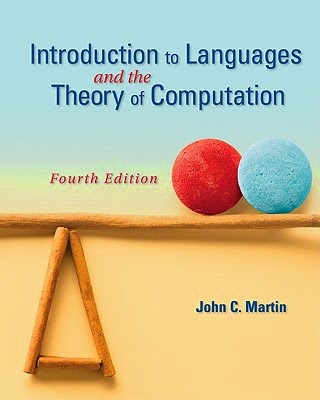Syllabus for Computer Science and Information Technology (CS)
ENGINEERING MATHEMATICS
Mathematical Logic: Propositional Logic; First Order Logic.
Probability: Conditional Probability; Mean,
Median, Mode and Standard Deviation; Random Variables; Distributions;
uniform, normal, exponential, Poisson, Binomial.
Set Theory & Algebra: Sets; Relations; Functions; Groups; Partial Orders; Lattice; Boolean Algebra.
Combinatorics: Permutations; Combinations; Counting; Summation; generating functions; recurrence relations; asymptotics.
Graph Theory: Connectivity; spanning trees; Cut vertices & edges; covering; matching; independent sets; Colouring; Planarity; Isomorphism.
Linear Algebra: Algebra of matrices, determinants, systems of linear equations, Eigen values and Eigen vectors.
Numerical Methods: LU decomposition for
systems of linear equations; numerical solutions of non-linear algebraic
equations by Secant, Bisection and Newton-Raphson Methods; Numerical
integration by trapezoidal and Simpson’s rules.
Calculus: Limit, Continuity &
differentiability, Mean value Theorems, Theorems of integral calculus,
evaluation of definite & improper integrals, Partial derivatives,
Total derivatives, maxima & minima.
COMPUTER SCIENCE AND INFORMATION TECHNOLOGY
Digital Logic: Logic functions, Minimization, Design
and synthesis of combinational and sequential circuits; Number
representation and computer arithmetic (fixed and floating point).
Computer Organization and Architecture: Machine
instructions and addressing modes, ALU and data-path, CPU control
design, Memory interface, I/O interface (Interrupt and DMA mode),
Instruction pipelining, Cache and main memory, Secondary storage.
Programming and Data Structures: Programming in C;
Functions, Recursion, Parameter passing, Scope, Binding; Abstract data
types, Arrays, Stacks, Queues, Linked Lists, Trees, Binary search trees,
Binary heaps.
Algorithms: Analysis, Asymptotic notation, Notions
of space and time complexity, Worst and average case analysis; Design:
Greedy approach, Dynamic programming, Divide-and-conquer; Tree and graph
traversals, Connected components, Spanning trees, Shortest paths;
Hashing, Sorting, Searching. Asymptotic analysis (best, worst, average
cases) of time and space, upper and lower bounds, Basic concepts of
complexity classes – P, NP, NP-hard, NP-complete.
Theory of Computation: Regular languages and finite
automata, Context free languages and Push-down automata, Recursively
enumerable sets and Turing machines, Undecidability.
Compiler Design: Lexical analysis, Parsing, Syntax
directed translation, Runtime environments, Intermediate and target code
generation, Basics of code optimization.
Operating System: Processes, Threads, Inter-process
communication, Concurrency, Synchronization, Deadlock, CPU scheduling,
Memory management and virtual memory, File systems, I/O systems,
Protection and security.
Databases: ER-model, Relational model (relational
algebra, tuple calculus), Database design (integrity constraints, normal
forms), Query languages (SQL), File structures (sequential files,
indexing, B and B+ trees), Transactions and concurrency control.
Information Systems and Software Engineering:
information gathering, requirement and feasibility analysis, data flow
diagrams, process specifications, input/output design, process life
cycle, planning and managing the project, design, coding, testing,
implementation, maintenance.
Computer Networks: ISO/OSI stack, LAN technologies
(Ethernet, Token ring), Flow and error control techniques, Routing
algorithms, Congestion control, TCP/UDP and sockets, IP(v4), Application
layer protocols (icmp, dns, smtp, pop, ftp, http); Basic concepts of
hubs, switches, gateways, and routers. Network security – basic concepts
of public key and private key cryptography, digital signature,
firewalls.
Web technologies: HTML, XML, basic concepts of client-server computing.

















